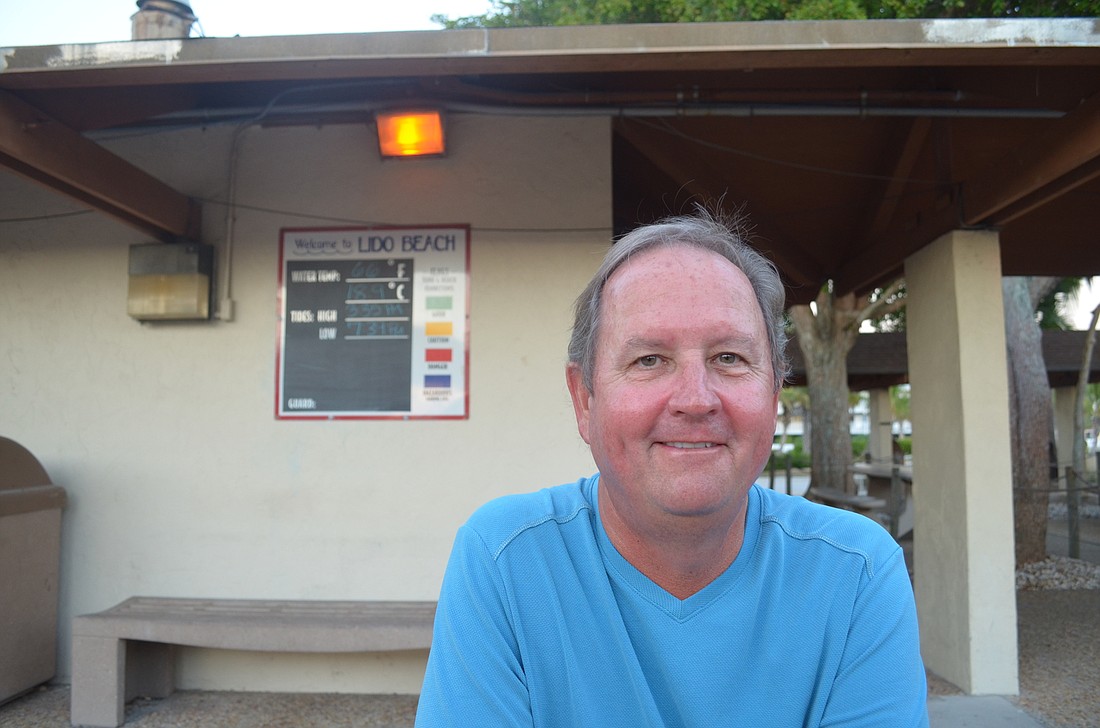- November 25, 2024
-
-
Loading

Loading

When Lido Key residents first heard a proposal to turn the city-owned pool and pavilion into a privately operated venture, the response was overwhelmingly negative.
Since the concept was first presented in November 2015, it has undergone some changes. A mini-golf course was removed from the plans. The proposed restaurant was reduced from 305 seats to 200.
As the plans evolved, so did the reaction from Lido residents. Their stance was notably softer at the last public discussion regarding the plans for the pavilion, an Aug. 18 workshop at City Hall.
“In my opinion, they’re showing good faith that they want to work with the neighborhood,” Lido Key Residents Association President Carl Shoffstall said after that meeting.
At its next meeting, the City Commission will make a key decision regarding the Lido pool and pavilion. It will tell staff whether to negotiate a contract with Lido Beach Redevelopment Partners LLC, the group led by Daiquiri Deck co-owner Troy Syprett that hopes to operate the city-owned facility.
Despite the changes, you can still count on outspoken opposition from many Lido residents. Those residents are now less focused on the details of the plans for the pavilion, and more on a philosophical question: Should the public property near the public beach remain in public hands?
David Riedlinger, chairman of the LKRA pavilion committee, is rallying people behind the idea that it should.
“With all the development projects that are going on, I think it becomes vitally important that we as a city maintain parks and recreation areas that are open and accessible to all,” Riedlinger said.
The city is seeking a private operator for the pool and pavilion to address budget issues. In 2011, the city discussed closing the pool for half the year because it was losing money. Residents convinced officials the properties could generate revenue, instead.
On paper, the proposal from Lido Beach Redevelopment Partners is in line with the changes Lido Key residents proposed for the facilities: “enhanced food services,” a tiki bar, a splash-pad area for children. David Boswell, the city’s purchasing manager, said the private group has been responsive to public input.
“We told them, ‘This is what came out of the public meeting,’” Boswell said. “None of it was deal-breaking for them.”
Riedlinger said he had no issue with Lido Beach Redevelopment Partners specifically. Instead, he pointed to Marina Jack as an example of what can go wrong when a private group manages public land. He expressed concern that, as the private entity focused on turning a profit, public access could become restricted.
“I just have this really bad vision that this could happen here on Lido if we allow a private entity to take over,” Riedlinger said.
At previous meetings, Syprett has stressed he wants the pavilion area to remain publicly accessible, and that access to the public beach cannot be restricted.
Riedlinger said the city can improve the pavilion area without turning it over to a private operator. The city has $1.25 million in tourist development tax funds budgeted for pavilion upgrades. That money is earmarked for restroom improvements, but Riedlinger said it could be used for a more wide-ranging project.
The city created a parks and recreation department this year, hiring Jerry Fogle as the director of that department. Riedlinger is encouraging residents to contact Fogle with their thoughts on how the pavilion can be improved while remaining a public asset.
He expects commissioners will be more sympathetic than they might have been five years ago, when budgets were tighter and parks weren’t a priority.
City staff isn’t making a hard recommendation on which direction to pursue — which means the commission will decide the fate of the Lido pavilion later this month.
“Do they want us to enter contract negotiation with these guys, or do they want us to scrap the whole project and go back to square one?” Boswell said.